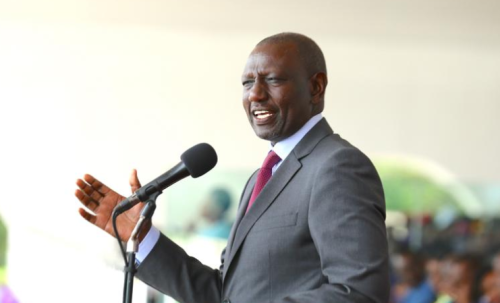President William Ruto has declined to assent to the contentious Finance Bill 2024 after it sparked significant public unrest, resulting in loss of life and property damage.
Addressing the nation from State House, Ruto emphasized his administration’s commitment to economic reform and public engagement.
“When we assumed office 20 months ago, our country was facing tremendous economic challenges,” Ruto stated, citing high fuel prices, rapid depreciation of the shilling, and escalating public debt as critical issues his administration had to address.
Ruto detailed the progress made under his leadership, including a notable reduction in the prices of essential commodities. “Today, the prices of essential commodities like unga have dropped from an average of KSh240 for a 2kg packet to KSh100, majorly attributed to our fertiliser subsidy programme and the resilience of our farmers,” he explained. Additionally, petrol prices have fallen from KSh217 to KSh189 per litre, and the shilling has strengthened from KSh165 to KSh129 against the dollar.
Significant strides have been made in managing Kenya’s public debt, which has allowed for more budgetary space to invest in programs targeting vulnerable populations and youth opportunities. “We have paid Kenya’s Eurobond debt of $2 billion incurred in 2014. Today, Kenya’s debt burden is much less, more sustainable and we are on course to redeem our country from the discomfort of debt and assert our sovereignty,” Ruto declared.
Despite these achievements, the Finance Bill 2024 faced strong opposition. Originally designed to support various public investments, the bill proposed additional taxes to fund the permanent employment of 46,000 junior secondary school interns, increased allocations to county governments, rural electrification, and support for farmers, among other initiatives. The bill was subjected to public participation, leading to several concessions, including the removal of VAT on bread, motor vehicle circulation tax, and excise duty on money transfer services.
However, public sentiment remained largely negative. “It became evident that members of the public were still insisting on the need for us to make more concessions,” Ruto acknowledged. Following the bill’s passage in the National Assembly, widespread dissatisfaction culminated in protests that tragically resulted in fatalities and property damage. “I send condolences to the families of those who lost their loved ones in this unfortunate manner,” Ruto expressed, before announcing his decision to reject the bill.
Looking forward, Ruto proposed a 14-day period for a multi-sectoral, multi-stakeholder engagement to address the issues within the Finance Bill and other related concerns. He also announced immediate further austerity measures starting with the Executive Office of the President. “I direct that operational expenditure in the Presidency be reduced to remove allocations for the confidential vote, reduce travel budget, hospitality and purchase of motor vehicles, renovations and other expenditures,” he ordered.
Ruto called on Parliament, the Judiciary, and County Governments to also undertake budget cuts and austerity measures. “We must live within our means,” he stressed, reaffirming the principles of constitutionalism, rule of law, and respect for constitutional institutions.












